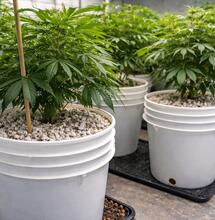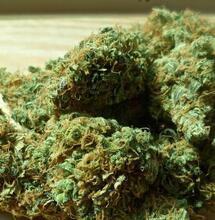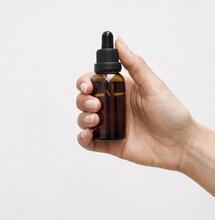Is Cannabis Skincare Good for Your Skin?

The CBD skincare market has become a multi-million dollar industry today. While nothing seems to hinder the growth of the CBD beauty products industry, many beauty consumers still have questions about whether cannabis skincare is really good for the skin.
After the enactment of the 2018 Farm Bill, which basically legalized CBD, there has been a deluge of CBD products marketed to help with skincare. CBD brands that sell skin moisturizers, hair conditioners, lotions, balms, creams, and similar goods can be purchased everywhere you go. So it's natural to ask whether they are all worth the hype.
"Benefits in cannabis skincare become a complex question," says board-certified dermatologist Dr. Ava Shamban who runs her clinic in Los Angeles. "As an ingredient, we know it is a potent antioxidant, and we have some clinical evidence and plenty of anecdotal evidence that it reduces inflammation and helps with pain management (alone and in tandem), regulates oil production, and fights off environmental damage by neutralizing free radical damage," says Shamban.
Dr. Hadley King, a board-certified dermatologist specializing in medical and cosmetic dermatology from New York City and Clinical Instructor of Dermatology at the Weill Medical College of Cornell University, also acknowledges the therapeutic value of CBD for skincare. "Cannabinoids may also have anti-inflammatory properties useful for treating eczema and allergic contact dermatitis," King says.
Clinical trials in recent years have seen encouraging outcomes for several skin conditions, showing that CBD can help manage sensitive skin, acne outbreaks, dermatitis, eczema, rosacea, psoriasis, and other skin problems. So, there's even a greater comfort to use cannabis topicals in skincare knowing that there's mounting scientific evidence of their efficacy.

What Does Research Say?
In atopic dermatitis and other inflammatory skin conditions, cannabinoids act as anti-inflammatory agents and help inhibit itching. In trials with patients with atopic dermatitis, a combined therapy that included cannabinoid topicals showed more significant time gaps between flares and reduced chances of relapse.
Research on psoriasis has shown that topical cannabinoid application activates the endocannabinoid system in the skin, thus reducing inflammation and regulating cell growth that pathologically increases in psoriasis. Similar effects have been observed with acne, where cannabinoids again activate the endocannabinoid system at the skin level and work to suppress cell growth and inflammation.
One study found that CBD creams can help people with uremic pruritis, a type of body itch commonly affecting people with advanced chronic kidney disease. A cannabinoid cream helped entirely eliminate the skin condition in 8 out of 21 patients.
One study gauged the effectiveness of cannabis-based cream in 11 patients with seborrheic dermatitis. This common skin condition mainly affects the scalp, causing scaly patches, inflamed skin, and stubborn dandruff. The patients were treated with 3% cannabis seeds cream, and researchers saw a significant decrease in erythema (redness) and sebum (lipids) production compared with control subjects.
Other studies have also shown the potential of cannabinoids in treating melanoma and non-melanoma skin cancers. Still, much more research is needed in this direction to develop therapies and plans for medical treatment.
What Cannabis Skincare Products to Look For?
For common problems like acne, itching, redness, and inflamed skin, CBD can best help when applied as oil, cream, or lotion. The general rule is that the purer the product, the better the results. Therefore, products with above 95% pure CBD will get the better outcomes for skincare and treatment.
High-grade CBD oils and topicals are more effective in triggering an anti-inflammatory reaction at the cellular level and can help prevent future problems on the skin.
However, before using any cannabinoid topicals on your skin, it's good to know the factor that causes the problem. Skin conditions sometimes happen due to hormonal disbalances, diet, stress, prescription medicines, or genetics and may require methods of care that involve solutions other than cannabis.
When skin problems appear to be persistent, it's best to check with a dermatologist and see if cannabis topicals can help or whether there's a need for some other kind of therapy.














